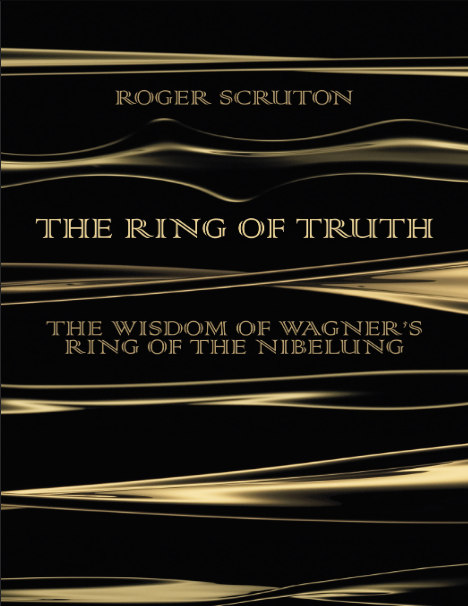Newly released
This book is new and will be uploaded as soon as it becomes available to us and if we secure the necessary publishing rights.

The Ring of Truth Book PDF
(0)
Author:
Roger ScrutonNumber Of Reads:
63
Language:
English
Category:
Social sciencesSection:
Pages:
257
Quality:
excellent
Views:
1046
Quate
Review
Save
Share
New
Book Description
Richard Wagner's Ring of the Nibelung is one of the greatest works of art created in modern times, and has fascinated both critics and devotees for over a century and a half. No recent study has examined the meaning of Wagner's masterpiece with the attention to detail and intellectual power that Roger Scruton brings to it in this inspiring account. The Ring of Truth is an exploration of the drama, music, symbolism and philosophy of the Ring from a writer whose knowledge and understanding of the Western musical tradition are the equal of his capacities as a philosopher. Scruton shows how, through musical connections and brilliant dramatic strokes, Wagner is able to express truths about the human condition which few other creative artists have been able to convey so convincingly. For Wagner, writes Scruton, the task of art is to 'show us freedom in its immediate, contingent, human form, reminding us of what it means to us. Even if we live in a world from which gods and heroes have disappeared we can, by imagining them, dramatize the deep truths of our condition and renew our faith in what we are.' Love, death, sacrifice and the liberation that we win through sacrifice - these are the great themes of the Ring, as they are of this book. Scruton's passionate and moving interpretation allows us to understand more fully than ever how Wagner conveys his ideas about who we are, and why the Ring continues to be such a hypnotically absorbing work.
Roger Scruton
Roger Scruton who has died of lung cancer aged 75, was a philosopher and a controversial public intellectual. Active in the fields of aesthetics, art, music, political philosophy and architecture, both inside and outside the academic world, he dedicated himself to nurturing beauty, “re-enchanting the world” and giving intellectual rigour to conservatism.
He wrote more than 50 books, including perceptive works on Spinoza, Kant, Wittgenstein and the history of philosophy, and four novels, as well as columns on wine, hunting and current affairs, and was a talented pianist and composer.
A member of the traditionalist-conservative Salisbury Group, he helped found the Salisbury Review, which he edited from 1982 to 2001. This quarterly, which was circulated in the Soviet bloc, often in samizdat form, was criticised in Britain for having retrograde attitudes. In 1984 it defended Ray Honeyford, the Bradford headteacher who had disputed the value of multicultural education. Consequent hostility from colleagues prompted Scruton to abandon in 1992 his professorship in aesthetics at what is now Birkbeck, University of London, where he had started as a lecturer in 1971. Though he felt this had scuppered his academic career, in the event it freed him for activities and adventures on a wider stage.
Read More
Book Currently Unavailable
This book is currently unavailable for publication. We obtained it under a Creative Commons license, but the author or publisher has not granted permission to publish it.
Rate Now
5 Stars
4 Stars
3 Stars
2 Stars
1 Stars
The Ring of Truth Quotes
Top Rated
Latest
Quate
Be the first to leave a quote and earn 10 points
instead of 3
Comments
Be the first to leave a comment and earn 5 points
instead of 3